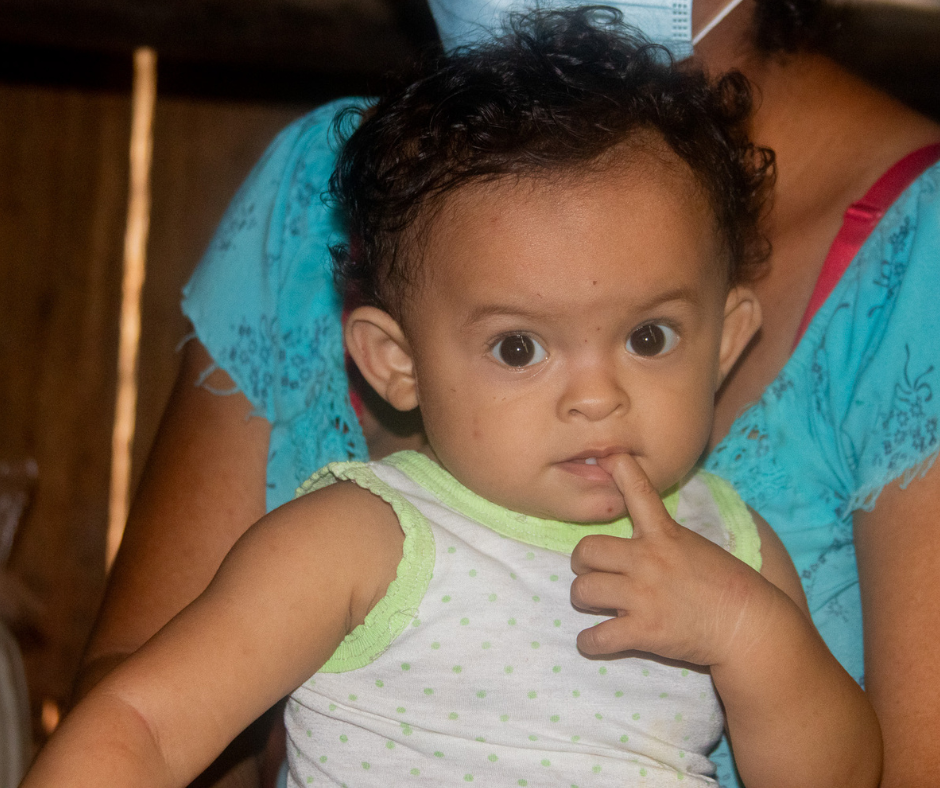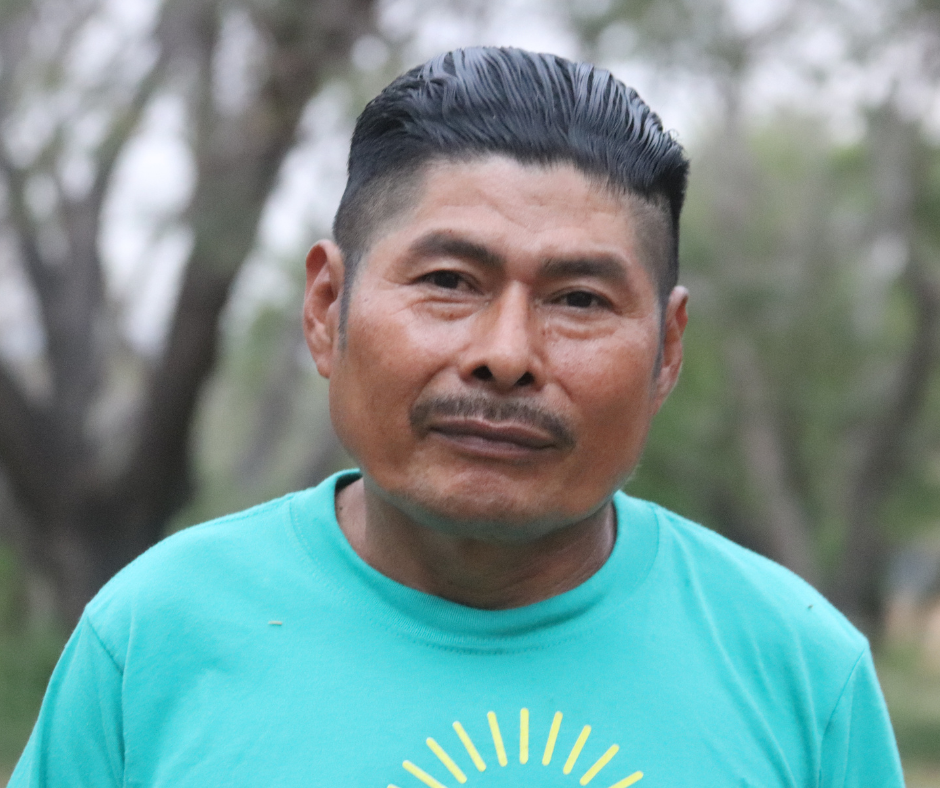El Cedro is an extremely remote community in the South Caribbean Coast of Nicaragua. Only 4×4 vehicles can reach a certain point on the dirt road; the remaining distance requires a donkey, mule, or horse or walking on foot for many hours. The closest doctor and health center are about six hours away.
This motivates Agustin Malueños, the AMOS trained Health Promoter in El Cedro, to serve his community. He does this by sharing health education to prevent disease, offering health care and medicines, visiting pregnant moms and young children to educate them on signs of alarm and good nutrition, and coordinating the response during emergencies.
When Adelina, a woman in her 40s and mother of several children became pregnant; Agustín visited her regularly. Her age indicated a high risk pregnancy, and he provided the education she needed and prenatal multivitamins. He also monitored her weight and vital signs and ensured she could give birth at a health unit instead of at home. Agustin knew that if there were a complication, help would be several hours away and might put her and her baby’s life at risk.
A couple of months before her due date, Adelina left to be with relatives in the town of Bluefields. Agustín was glad since he knew there was a health center nearby and she could give birth safely there. But a couple of weeks later, Agustin heard that Adelina was back in El Cedro.

“I immediately went to check on her and talked to her about the importance of going to the Casa Materna or Mother’s Waiting Home for pregnant moms in the closest town. She promised me she would go the following morning. But, she didn’t. So, I came back and tried to convince her. And, even though she told me she would go, she didn’t.”
Health Promoters face situations like this very often. There are many cultural and social factors why women refuse to leave their homes to give birth (they feel “strong enough” to give birth at home, being in a strange environment and away from their loved ones, not having their husband’s approval, etc).
“The next day, Adelina’s brother came running to my house. He told me she was in pain and needed urgent help. I rushed to see her. When I arrived Adelina was unconscious. Her blood pressure was high and everyone was alarmed. I called the staff at the nearest health center, explained the situation and pleaded with them to send an ambulance.”
Agustín knew the ambulance could not make it all the way to El Cedro, and it would take them at least 3 hours to get as close as possible on that dirt road. So, he activated the community Emergency Transportation Committee. Using a hammock and wooden poles they put together a makeshift stretcher to transport Adelina.

“We took turns to carry her and on the way other good men joined and helped. After 2.5 hours, we reached the ambulance that took Adelina to the regional hospital.” Later, she was transferred to a hospital in Managua where doctors performed a C-section. She was in the hospital for a month.
Fortunately, Adelina and her baby boy survived and made it back to the community.
“When I went to visit her and her newborn to check on them, Adelina was happy and grateful. She is already telling other women in the community about what happened to her and the importance of going on time to the Mother’s Waiting Home to give birth.”
Thank you for helping leaders like Agustin save lives and bring the light of hope to vulnerable families in remote communities of Nicaragua.
To learn more about stories like this one, read or download our 2023 Annual Report.

